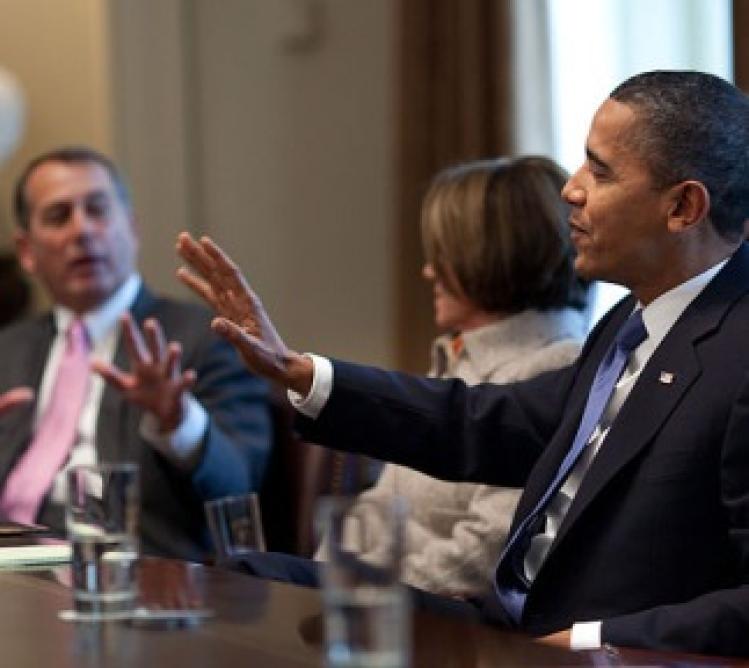
To be deemed a serious analyst at the moment seems to require a lot of hand-wringing and sneering over how awful Congress looked over the last few days as it rushed a fiscal cliff deal into law.
So permit me to burn my membership card in the League of Commentators and Pundits.
Of course, there was much wrong about how Congress, particularly the House of Representatives, dealt with the best-known deadline in recent political history. A better deal was available weeks ago. But in the end, some very important and positive things happened.
Democracy, in its messy way, worked. An election had a real impact on public policy, moving it in a more progressive direction. Thus, for the first time since 1990, a significant number of Republicans voted to raise taxes -- and they raised them most on the very rich. House Speaker John Boehner allowed a bill to become law on a vote in which far more Democrats (172) than Republicans (85) said “aye.” The old rule that Republicans would only allow floor action on bills that could pass with GOP votes was swept away, at least this time.
The cliff deal made our tax code more progressive. The top income tax rate is back up to 39.6 percent. Capital gains taxes, cut repeatedly since the 1970s, were raised. Consider: The provisions enacted Tuesday night combined with the tax hike in the Affordable Care Act mean that capital gains taxes will now be 18.8 percent for couples with annual incomes of more than $250,000 and 23.8 percent for couples earning over $450,000.
True, Democrats caved in by failing to tax dividends as ordinary income, as they used to be. Capital gains should also be taxed as ordinary income, or, at the least, at around 30 percent. But is this progress? The answer is yes.
There are other pieces of good news in the bill, including an extension of unemployment benefits and of the various refundable tax credits that are especially helpful to lower-income people. The estate tax rises to 40 percent on fortunes of more than $5 million. Yes, it’s still too low. But at the end of George W. Bush’s term, we were looking at a complete repeal of the estate tax. Isn’t 40 percent better than zero?
It is a real shame that Congress didn’t include more stimulus measures, especially an extension of the payroll tax holiday for another year, as President Obama originally requested. This would have helped the overall economy and hard-pressed families. But it was blocked not only by conservatives but also by liberals worried about the financing of Social Security. This was a mistake.
Nonetheless, the broadly progressive thrust of the accord is the only way to explain why Boehner had to face down a rebellion from his right, and why a substantial majority of his Republican colleagues voted against it.
Many liberals are unhappy for the same reasons that Republicans who backed the bill are hopeful. Both groups assume that (1) Obama has now lost all his leverage; (2) he will fold during the next round of negotiations as a vote on the debt ceiling approaches; (3) this was the last chance to win tax increases; and (4) the deal contains a lot less new revenue (roughly $620 billion over a decade) than it should have.
There’s no question that significantly more revenue will be needed to avoid steep cuts in social insurance programs. And it’s useful that many on the left have signaled their dissatisfaction because this will expand their influence (and Obama’s negotiating room) in the coming months.
But we should at least consider the possibility that this week’s Midnight Madness was actually a first step down a better road. This will be true if Obama hangs as tough as he now says he will; if he insists on more revenue in the next round of discussions; and if he immediately begins mobilizing business leaders to force Republicans off a strategy that would use threats to block a debt-ceiling increase to extract spending cuts. Real patriots do not risk wrecking the economy to win a political fight.
Obama has to prove wrong both his skeptical allies and foes inclined to underestimate him. He needs to move the discussion away from a green-eyeshade debate over budgets and foster a larger conversation over what it will take to restore broadly shared economic growth. His presidency really does depend on how he handles the next two months.
(c) 2013, Washington Post Writers Group
